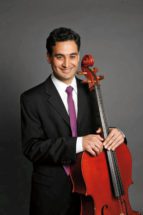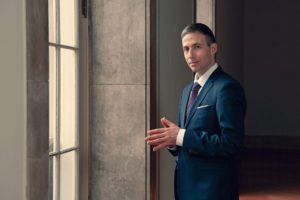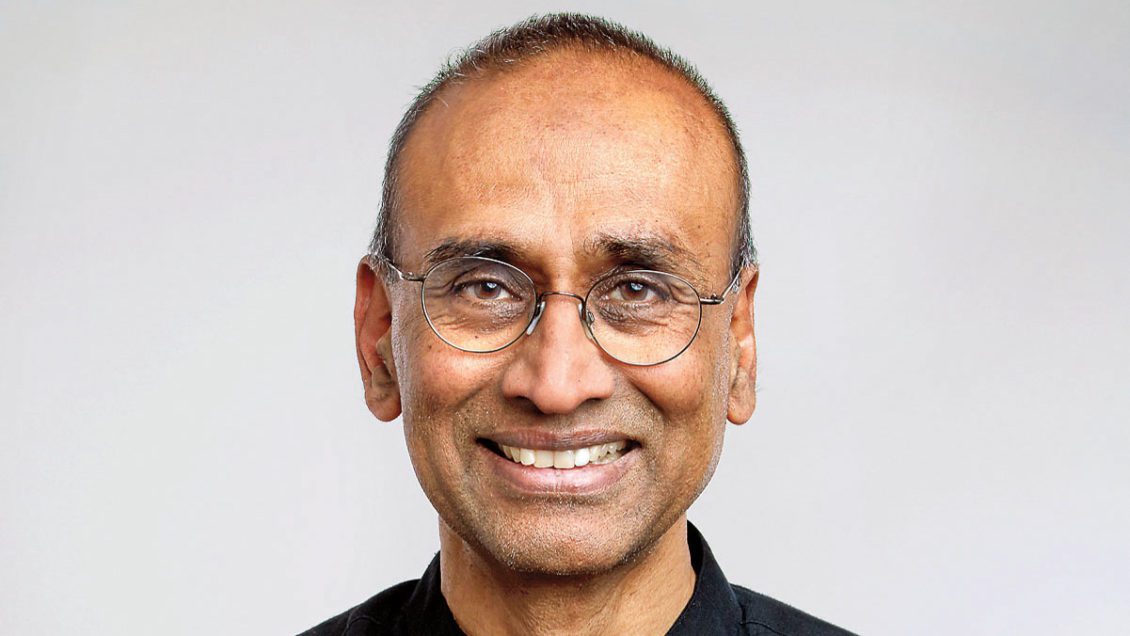Although Nobel Prize-winning biologist Venki Ramakrishnan and his son, world-renowned cellist Raman Ramakrishnan, chose different career paths, they have one thing in common. They both studied physics before deciding to pursue their passions.
Both will take part in a unique event at Clemson University on March 9 at 2 p.m. at the Brooks Center for the Performing Arts.
The event features a lecture by Venki Ramakrishnan, who shared the Nobel Prize in chemistry in 2009 for his research into the atomic structure and function of ribosomes, and musical performances by his son Raman Ramakrishnan and concert pianist and conductor Benjamin Hochman. The lecture’s name, “Gene Machine,” comes from Venki Ramakrishnan’s book, in which he writes about the race to decipher the secrets of the ribosome, which translates messenger RNA into protein.
Inextricably connected
“Science and the arts are often seen as opposites, but both science and the arts are expressions of the creative brain,” said Robert Anholt, the Provost’s Distinguished Professor of Genetics and Biochemistry at Clemson and organizer of the event. “Science and music are inextricably connected. Both require emotion, creativity and intuition. Both require practice, preparation and collaboration. Both have the power to provoke change and to improve our lives. The Gene Machine event will appeal to all, as both science and music enrich us.”
Gene Machine
A science lecture by Nobel Prize laureate venki Ramakrishnan and a musical performance by his son, renowned cellist Raman Ramakrishnan, and concert pianist Benjamin Hochman.
When: March 9
Where: Brooks Center for the Performing Arts, Clemson University
General Admission: $25 for adults, free for students
Tickets: Link
Anholt and Ramakrishnan met at the University of California San Diego, where both were Ph.D. students in biology. Ramakrishnan had earned a Ph.D. in physics but became interested in applying physical methods to solving fundamental biological problems. He enrolled in the graduate program in biology at UCSD but left after two years for a postdoctoral position at Yale. After working at the Brookhaven National Laboratory and the University of Utah, Ramakrishnan ended up at the Medical Research Council Laboratory of Molecular Biology at Cambridge University in England.
Groundbreaking work
His groundbreaking research provided fundamental insights into the mechanisms by which proteins, the workhorses of the cells, are synthesized according to the genetic blueprint. The work paved the way for the development of new antibiotics.

Venki Ramakrishnan was knighted by Queen Elizabeth and served as president of the Royal Society for a five-year term during Brexit and the COVID-19 pandemic.
He has a long list of honors and awards, including being elected a member of the U.S. National Academy of Sciences, the German Leopoldina Society and the American Philosophical Society.
Raman Ramakrishnan holds a physics degree from Harvard University and a master’s degree from The Julliard School.
He has performed throughout North America, Europe, India, Japan and Hong Kong. Raman Ramakrishnan is a founding member of the Daedalus Quartet and a former member of the Horszowski Trio. He has also performed as a guest member of Yo-Yo Ma’s Silk Road Ensemble.
He is an artist in residence at Bard College and is an artist member of the Boston Chamber Music Society.
Venki Ramakrishnan used part of his Nobel Prize money to buy his son a Vincenzo Jorio Neapolitan cello made in 1837 in Naples, Italy.

Pianist Hochman has performed as a soloist, chamber musician and conductor.
Born in Jerusalem in 1980, he debuted as a soloist at age 24 with the Israel Philharmonic at Carnegie Hall. He won the Lincoln Center’s Avery Fisher Career Grant. He is a Steinway Artist and lives in Berlin, where he is a lecturer at Bard College Berlin.
Raman Ramakrishnan and Benjamin Hochman will perform works by Bach, Fauré and Chopin as part of the Science and Music event.
Raman Ramakrishnan and Hochman will also hold a concert in Greenwood on March 10 at 7:30 p.m. at The Arts Center of Greenwood where they will perform sonatas by Beethoven, Britten and Brahms. The concert is presented by the Clemson University Center for Human Genetics.
For more information, email ranholt@clemson.edu.
Get in touch and we will connect you with the author or another expert.
Or email us at news@clemson.edu

